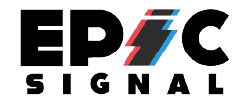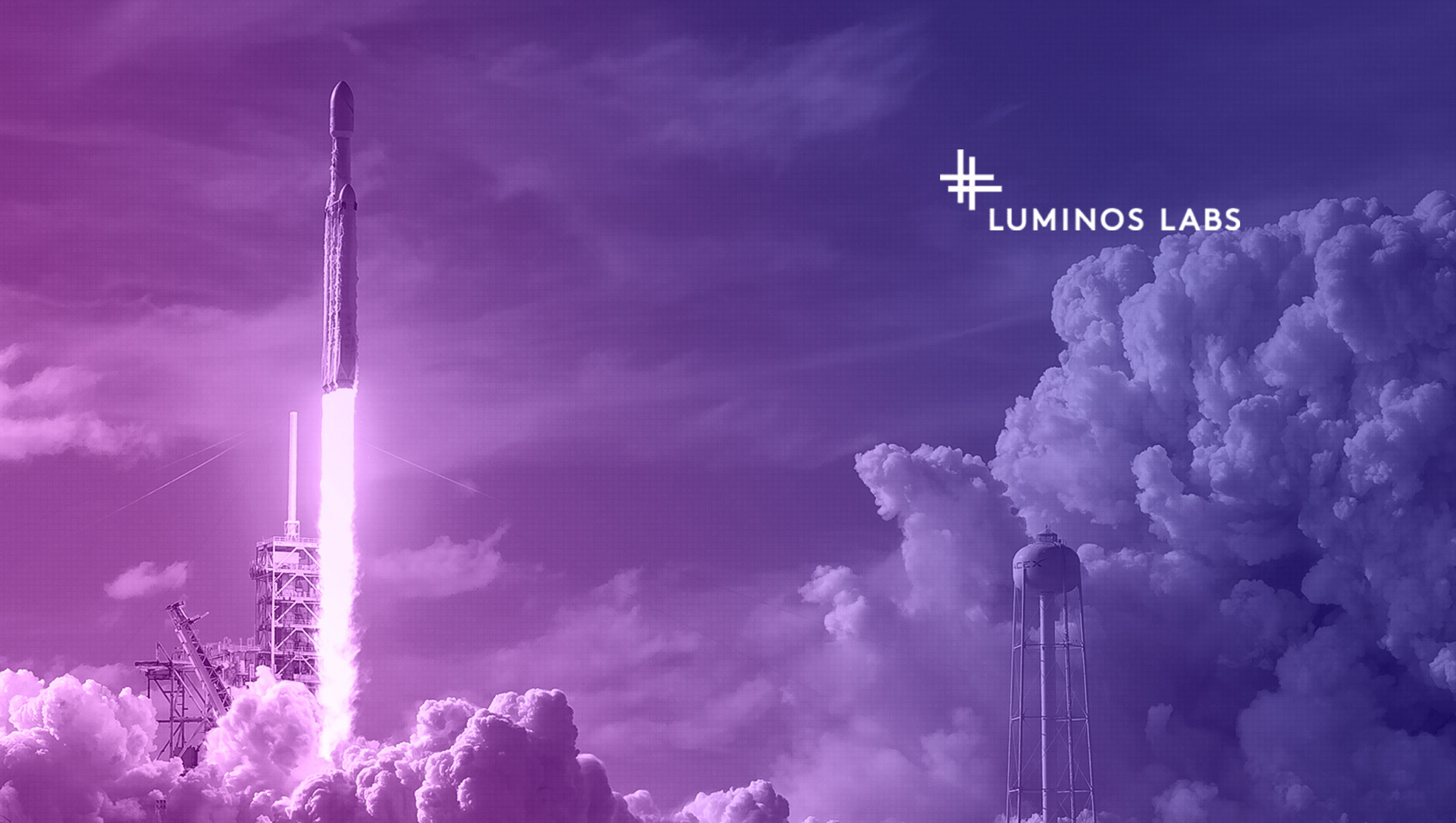Tell us about your journey into technology. What made you start Epic Signal?
I got into advertising at an interesting time – I graduated college and got an internship in advertising in 2005, when Myspace and the first social media platforms were starting to come on the scene.
I was the “young guy” in the office as these platforms were making headlines and co-workers would always come to me with questions about them. No one in the office was on Facebook; you needed a college email to join and I was on it because I’d joined my senior year. I was also on Myspace and got really into YouTube when it first started gaining traction. I carved out a niche for myself, providing advice on how to use social media platforms, and I started pitching ideas.
I was fortunate enough that I had early success creating some of the first YouTube influencer marketing campaigns and helping to make the content that we were developing “go viral” (for lack of a better term). I spent about eight or nine years working on the agency side, ultimately as Director of Social Media, helping to design and execute early influencer marketing, viral video campaigns, and social strategy tactics.
After nearly a decade working on the ad agency side of the business, I joined a startup in LA and after a year there decided it wasn’t for me and quit. I started consulting and I thought that I was going to take time to figure out what I really wanted to do next.
Almost immediately, I had more clients and opportunities than I expected and they were too good to pass up. I had struck out on my own right when influencer marketing was going mainstream within the ad world, and because I’d been doing it my entire career, I’d built up a solid reputation as the go-to guy for influencer marketing, YouTube, and social video. I started staffing up to handle the workload and without even realizing it I was running a small business.
What are the core tenets of your business development model? How does Epic Signal add value to social media transformation journeys for businesses?
We’re a full service social media agency, but I believe that the core tenet of our business development model is that we deliver first-ever social activations.
In addition to that, we believe in providing value and credibility in the social space through our deep relationships with digital talent and overall expertise.
We bring a lot of disciplines together (strategy, analytics, production, influencer marketing, etc.) and really understand on a deep level how they work well together to garner results for our clients.
Why do you call Epic Signal a ‘Social-First’ Agency? How do you measure the performance of your marketing analytics and sales reporting?
We talk about Epic Signal as being “social-first” because that’s what we believe and that reflects the needs of our clients.
Too often within this space, ad agencies bucket social as an extension of the “above the line”traditional campaigns (social posts are limited to lifts from TV spots, etc). The reality is that brands are being built upon social and digital platforms, and you don’t need major TV exposure to build a brand or tell your story.
We also believe in doing things first. We like to push innovation internally, and test and learn with new platforms and tactics. We built the first-ever creator-driven brand multi-channel network (MCN), and we regularly partner with platforms to test new features and/or are early adopters to see which platforms are worth investing in. I believe that learning is key to this space – you’ve got to be first (or at least early) to maintain an edge and be competitive.
Measuring the performance of campaigns varies based on the needs of our clients. We do some campaigns that are CPA driven and others that are awareness driven or are aimed at changing sentiment.
Depending on the KPI’s, we’ll leverage different tools, but we’ve got subscriptions to the major social listening and media tools. We’ll leverage additional services or vendors on an ad hoc basis – it is all contingent upon client needs and goals.
What benefits do you extend to your customers and employees as part of your marketing transformation?
I think the thing which sets us apart for our clients is our depth of experience and expertise in a space that is still considered to be new. There are not a lot of people that have been focused on influencer marketing, social, and social video since day one. That is such a rarity, and that knowledge allows us to be a lot more confident and strategic in how we approach our work and, ultimately, translates into value for our clients.
There’s a lot of value that we provide internally for employees, as well. I think the biggest/best thing is the culture – its an environment of collaboration. It’s why we’re able to tackle ambitious projects; everyone on the team knows that they’ve got the support of their peers and won’t be left alone with problems because we’re all in this together.
We also encourage a culture of learning – that it is ok to attempt something you don’t know. This extends in tangible ways, as well. For example, we’ve got an annual budget for education; anyone on the team can submit a request to take a class or course, and if there’s a business case to be made for it and it’s not crazy expensive, we approve it. Rising tides lift all boats; what’s good for you is good for us and vice versa.
What are your predictions on the most impactful disruptions in social media and influencer marketing?
In a lot of ways (and I’m going to borrow this quote from William Gibson), “The future is already here – it’s just not evenly distributed.”
So much of advertising is stuck in the past – we still spend an obscene amount of money on content that’s unproven, on mediums that have no measurable ROI, on old ways of working with agencies, and on celebrities that may or may not have an impact on a brand’s business.
So much of digital (and social) is overlooked and pigeonholed as this thing that is going to be big and important someday–for most brands, it is still considered to be very experimental.
Many brands are not leveraging the ability to do some of the most basic things available to them, like optimizing their digital ad spends, targeting, and creative. Instead, they buy digital the way you buy print or out of home, handing over the budgets upfront and then walking away. The same goes with influencer marketing. Many brands are still paying a premium for “traditional” stars (i.e., TV and movie stars), even when targeting younger consumers.
The opportunities that brands have today to surpass their competitors and be more targeted, efficient, and effective are at their fingertips, but they’re not fully taking advantage of them.
I think the future will be a deconstruction of the existing processes and agency structures where things are leaner and more results-oriented.
What startups in the technology industry are you watching keenly right now?
At the moment there are two categories we’re really eyeing; I don’t have any one company that I’m eyeing as being particularly groundbreaking at the moment.
We’re always meeting with new platforms and networks. We’re in an interesting time when social is really being dominated by Facebook and Google, with Twitter and Snapchat on the periphery to a lesser extent. Is this a consolidation or is there room for more serious contenders?
The other area in which we spend a lot of time is analytics. We’re always looking for great influencer marketing tools. Tools that provide influencer demographic data, consolidate information across social platforms, and track engagement rates are particularly useful. We still spend a lot of time manually consolidating data to get an accurate picture of the impact of an influencer across multiple platforms, so anything that helps to automate this and can keep up with changes across platforms tends to be really helpful.
Could you tell us about an outstanding digital campaign?
One of the things of which I’m most proud is the work that Epic Signal has done with Mountain Dew. We developed and launched the first-ever brand-owned multi-channel network, Green Label, in a bid to build direct and long-term relationships with digital creators.
The MTN Dew Green Label MCN has an incredible roster of creators in the action sports, music, and male lifestyle categories. We’ve worked with D-Trix, Dyrus, the professor, and skateboarders Josh Katz and Nigel Alexander, to name a few. Our influencers have a collective audience in the millions and we’ve amassed over 500 million YouTube views over the lifetime of the Dew MCN.
I think the thing that was so great about it is that it was bigger than a campaign. Creators were an extension of the MTN Dew brand and marketing team – they were making appearances, creating branded content, appearing in Super Bowl ads – they were truly integrated. Furthermore, Dew had category exclusivity and was able to generate revenue off the ads that were run against influencer content. It was incredibly innovative and not something that I’ve seen replicated since. I have to shout out Hallie Harris, our managing director, who really spearheaded the initiative and was instrumental in making the crazy idea a reality.
How do you prepare for an AI-centric world as a business leader?
AI is already a big part of digital and social advertising – I’m sure it will continue to be an important part of the space. Where I see us fitting into an AI-centric world is as an agency, being the tip of the spear – it’s our job to leverage AI to refine our ideas and make our campaigns better over time.
However, the agency’s role is really to be the innovator and idea generator. AI is great to build upon and optimize something, but it’s not (at least not currently) something that is going to be bringing groundbreaking ideas to clients. Instead, it is something that provides data and helps to refine our business.
For example, AI is used in Facebook ad optimization. However, you wouldn’t (and couldn’t) use AI to come up with an original campaign. Instead you use AI to inform decisions, refine messages, and improve targeting.
How do you inspire your people to work with technology?
I’m a big fan of sharing ideas and opportunities, and letting people come to their own conclusions about how to utilize the information. At Epic Signal, we have weekly meetings where we run through the statuses of all of our accounts and where we also share learnings, go over new platforms, and bring in vendors or partners for presentations.
It’s a great way to share information and opportunities with the entire organization, and to get people thinking.
One word that best describes how you work.
Grit.
What apps/software/tools can’t you live without?
- Email – I have a major love/hate relationship with email. I wish there was a better tool out there to communicate with people.
- Google Calendar – I put everything in my calendar (both personally and professionally). If it’s not on my calendar, then the odds of it happening are slim.
- Google Docs – This is critical for internal collaboration on projects.
- Emailga.me – This is the best email app ever. It pulls in emails one at a time and allows me to respond,boomerang it back to myself, or schedule a response for a later date. It also has a clock counting down so it creates a sense of urgency and gets me to go through my emails faster.
- Evernote & Skitch – So great for saving notes and screenshots.
- Textwrangler/BBEdit – Great for stripping out the format for text.
What’s your smartest work-related shortcut or productivity hack?
Waking up early. I get so much work done early in the morning. I like to do any deep thinking such as writing or crafting a presentation early in the morning. I can sit down and focus without distractions, and my mind is clear.
During the day you generally have a lot of distractions – meetings, IM’s, emails, phone calls, etc. Late at night usually my brain has a lot of ideas and “to do’s” rattling around, and I can’t focus as well.
What are you currently reading? (What do you read, and how do you consume information?)
I love reading. I listen to a lot of books on Audible, as well as reading physical books.
Generally, when I’m reading for pleasure, its usually history and lately a lot of US history. I think the Edmund Morris series on Theodore Roosevelt is one of the greatest things I’ve ever read.
At the moment I’m reading a few books (going back and forth depending on my mood). I’m about halfway through three books: A Confederacy of Dunces, Command and Control, and American Heiress: The Wild Saga of the Kidnapping, Crimes and Trial of Patty Hearst. All three are great so far.
Like most people, I’m also on social media too much and I read and watch plenty of stuff that is probably not the best use of my time. I also do my best to read news important to work such as Digiday, Adweek, AdAge, Techcrunch, Tubefilter, and The Hustle.
What’s the best advice you’ve ever received?
Jason Harris (President and CEO of Mekanism) has been really instrumental in my growth throughout my career. He and I have worked together off and on since I was an intern.
I don’t know if he’s ever explicitly stated this as advice, but it is something that I picked up on along the way: just about anything is possible. He taught me that if an idea is great, you can sell it, and people will rally to figure out how to make it possible. There’s no need to unnecessarily constrain your thinking – particularly in the pitch stage.
Something you do better than others – the secret of your success?
I think there are a few things that have gotten me to where I am.
One is the belief that there is a solution to just about every problem. Whatever challenge you’re facing, someone else has solved it and they’re looking to monetize it. There’s very little that you could dream up (within marketing at least) that someone out there hasn’t tried and refined.
Secondly, and this goes hand-in-hand with the above point, finding expert partners and investing in those relationships is really helpful. I’ve been fortunate enough to collaborate with a lot of innovators because I took risks and invested in people in the early early stages of their careers or their businesses (particularly influencer marketing, viral videos, and social media as a whole).
The third thing that has helped me is focusing on emerging trends. Influencer marketing was niche 10 years ago; now its a huge business. The relationships and expertise that I developed early on–when very few others were even aware of influencer marketing–have paid dividends. I have access to more people, I have long standing relationships, and I have far more experience than most people within the space. I try to continue to identify emerging trends, partners, and platforms.
Tag the one person (or more) in the industry whose answers to these questions you would love to read:
Thank you, Brendan! That was fun and hope to see you back on MarTech Series soon.
As the Founder and EVP of award-winning social video agency Epic Signal, Brendan Gahan is an influencer and social media expert who has helped Fortune 500 brands such as Starbucks, Amazon Fire, Mountain Dew, Axe and 20th Century Fox with their YouTube influencer and community building campaigns. He has launched successful social activations across all social media platforms and was named to Forbes’ “30 Under 30” in Marketing & Advertising.
 Epic Signal is a social agency specializing in online video platforms and influencer marketing.
Epic Signal is a social agency specializing in online video platforms and influencer marketing.
Founded in 2013 by Brendan Gahan, formerly of Fullscreen Media and now-parent agency, Mekanism, the company has quickly become an unrivaled force in the social-video marketing space, orchestrating high-impact campaigns for clients such as PepsiCo, YouTube, Amazon, MillerCoors, and Starbucks.
Their marketing programs harness the unique influence and reach of social-video creators. This approach, combined with a strategic use of platforms like YouTube, Instagram, Facebook, and Snapchat allows Epic Signal to deliver engaging, first-of-their-kind digital experiences that raise awareness, build brand communities, and inspire loyalty.
The MTS Martech Interview Series is a fun Q&A style chat which we really enjoy doing with martech leaders. With inspiration from Lifehacker’s How I work interviews, the MarTech Series Interviews follows a two part format On Marketing Technology, and This Is How I Work. The format was chosen because when we decided to start an interview series with the biggest and brightest minds in martech – we wanted to get insight into two areas … one – their ideas on marketing tech and two – insights into the philosophy and methods that make these leaders tick.












Comments are closed.